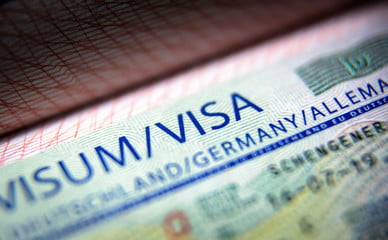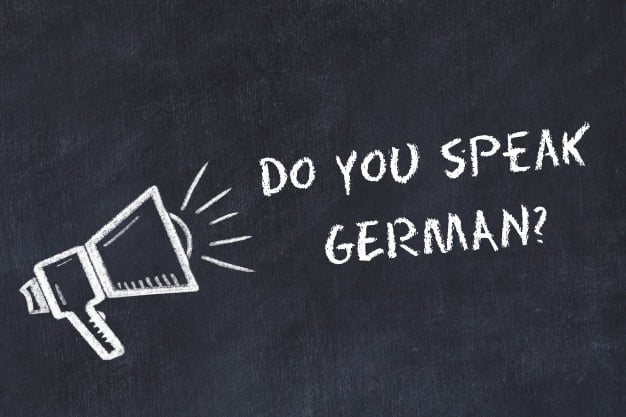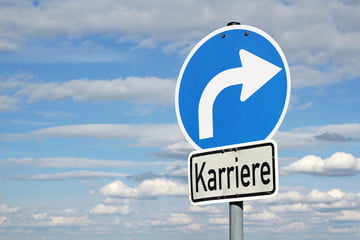July 12, 2020
How To Successfully Land A Job With A Job Seeker Visa Germany
By Jino George
Hello everyone. My name is Jino George, and I hail from Kannur.
I completed my Bachelor’s degree in Civil Engineering, and I have three years of work experience. I recently moved to Germany, and I've attained a job with a job seeker visa Germany. So I thought of sharing my experience with you.
While I was working, after completing Civil Engineering, I came to know about job seeker visa Germany through Pingme Study Abroad. After reading about Germany Job Seeker visa, I approached Pingme study abroad, and they gave me proper guidance for the entire application process, starting from guidance to the German language class until I got the job.
I have started applying for a job while I was studying German. Pingme also guided me in applying for jobs, i.e., how to apply, where I should apply, as well as in evaluating the response from each company. Pingme also assisted me in preparing a cover letter to apply for jobs. If you have applied for a job without a cover letter, you will be more likely to get rejected.

One of the requirements for a job seeker visa Germany is two years of consecutive work experience. But I didn't have consecutive work experience. But it was never an obstacle for me since Pingme guided me in working during studies. I was able to overcome the challenge of not having consecutive work experience.
I have applied for almost 700+ jobs. I have mainly sent a job application online. Mostly I have relied on Stepstone and Indeed. Besides this, I have also used Yourfirm and Xing websites.
My options were limited, since the prerequisite for most jobs were higher levels of German language.I got more response when I applied for jobs with the B2 level German language qualification. I received a lot of interview calls while I was in my home country when I was learning the language, and they emphasised more on the German language, and their major requirement was proficiency in the German language. It is easy to get a job with fluent German language skills.

For those who are searching for jobs, I suggest that while you're in your home country, you need to apply for at least 500 jobs. I think it's not an overwhelming task to apply for 500+ jobs since you're applying online.
When you apply for jobs while you're in Germany, it will take at least three weeks to get a response. Since the validity of a job seeker visa Germany is six months, it's better to start applying at the earliest, since you get only six months to search for a job, which can end easily. Also, when you apply, you have to mention the date of arrival in the cover letter. Another thing that you need to keep in mind is that language certificate, experience certificate etc. should be attached when you send a job application. You should not upload the CV alone and send it. Instead, all the required documents should be sent together.
When you apply for the job, while you're in your home country the address, phone number mentioned will be that of your home country. And if the company fails to reach you through that, then they will be sending you an email. About 90% of the companies will be responding through email, and only after that, they'll call you. Therefore in your CV, you have to mention that you can respond through email. And while you're in Germany, if you are mentioning the German address and phone number, then you will be getting more response.

Afterwards, I applied for the Germany job seeker visa. Pingme assisted me in getting a visa appointment at the German Embassy. They have also helped me with the required documents for the appointment at the embassy.
My visa interview was on January 14. Usually, the processing time for a Jobseeker visa is around four weeks to 3 months. Pingme Study Abroad made everything much easier for me. Since they have correctly done the documentation, I received the visa within 48 hours.
I landed in Berlin on February 20. Soon after landing, I completed the city registration. After completing city registration, with it, you can get a tax id and social id. You have to submit the tax id and social id after signing the contract. Wardenburg was the location of my job. And it takes around 2 hours to reach Wardenburg, from Berlin. Even though I completed the city registration when I arrived in Berlin, I repeated the entire procedure once again, after reaching the job location. It is better to complete the registration process after getting a job.
Finding accommodation was not a concern since Pingme helped me with that. They helped me in finding accommodation in Germany, which will be otherwise a difficult task for me.
Many people who arrive in Germany with a job seeker visa, go back to their home country because they are not proficient in German. To those who are coming to Germany with a job seeker visa, I highly recommend studying the German language to the highest level possible. There are a lot of vacancies awaiting you here in Germany, not only for engineers but for those in other fields as well. You are more likely to get a job in Germany if you easily handle the German language.
While in Germany, I attended two interviews. Luckily I cracked the second interview. The interview that I have attended was conducted in German. The interviewer mainly asked me everything related to my work experience, what was my previous job in my home country, nature of the work etc. The interviewer had thoroughly gone through my CV. Also, it's very important that you need to prepare your CV and cover letter in German. Added with that, you will get more response if you send a CV and cover letter in German, rather than a CV and cover letter in English.

To be precise, I got the job on March 9. But due to COVID-19, both the joining as well as job seeker visa conversion got delayed.
I received a job offer letter from the company. But I was not able to convert my job seeker visa Germany since the salary mentioned in the job offer letter was not sufficient for visa change. But luckily Pingme came to my rescue. As per the instructions by Pingme, I changed my visa status.
When I arrived in Germany, I faced some difficulties due to the climate. And I was unable to consult a doctor because I didn't have Health insurance. Therefore it's better to take health insurance for six months, from the home country itself. This is because while in Germany on a job seeker visa, you will get health insurance only after getting a job. You can apply for health insurance, after you get the job, with the job contract.
From the bottom of my heart, I thank Pingme study abroad for guiding me from the start until the end and making the job seeker visa Germany process much easier for me.
Other Blogs
3
Feb

How to Qualify for Germany’s Opportunity Card: Eligibility Criteria Explained
Germany’s Opportunity Card offers skilled professionals an easier way to live & work in Germany. Learn about the eligibility criteria, points system, and more.
28
Jan

Why Choose German Public Universities for Your Master’s Program?
Discover why German public universities are ideal for a Master's: world-class education, tuition-free programs, vibrant culture, and excellent career prospects!
2
Jan

Germany’s Opportunity Card: A Game Changer for Skilled Professionals
Germany's Opportunity Card offers skilled professionals a simplified path to live and work in Europe's strongest economy, no job offer needed.


